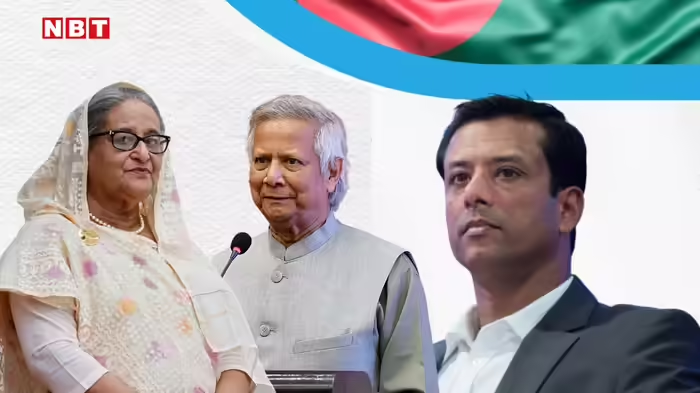
**
Dhaka/Virginia: Tensions between New Delhi and Dhaka continue to rise following Bangladesh’s demand for the extradition of its ousted Prime Minister Sheikh Hasina. The International Crimes Tribunal (ICT) of Bangladesh has sentenced Hasina to death, accusing her of crimes against humanity for allegedly suppressing a violent student uprising in July 2024. Since her overthrow in August last year, Hasina has reportedly been living in India at an undisclosed location.
In a significant development, Hasina’s son Sajeeb Wazed, who currently resides in the United States, has issued a statement on Dhaka’s extradition request made by the Yunus-led government. Speaking to news agency ANI, Wazed expressed confidence in the Indian government’s handling of the matter.
“I believe the Government of India knows very well how to deal with such an extradition request,” he said. “I do not think India will respond to any illegal request. I trust India’s commitment to democracy and the rule of law.”
“India’s Real Concern Is Those Backing Yunus Government”
Wazed further warned that India should be more worried about the forces supporting the current Bangladeshi regime.
“It is the Jamaat-e-Islami—Bangladesh’s largest Islamist party. They have released thousands of terrorists whom our government had convicted and jailed,” he said.
This, Wazed claimed, poses a direct threat not only to Bangladesh but also to India’s internal security. He alleged that the Pakistan-based terror outfit Lashkar-e-Taiba (LeT) is operating freely inside Bangladesh, even claiming credit for certain actions. According to him, recent terror attacks in Delhi have been linked to LeT’s Bangladesh-based network.
“Prime Minister Modi must be deeply concerned about the terrorism emanating from Bangladesh under the current regime,” Wazed added.
Background: Hasina Sentenced to Death, Others Given Leniency
The ICT verdict not only sentenced Sheikh Hasina but also handed a death penalty to her home minister in the previous government, Asaduzzaman Khan Kamal. They were both found guilty of orchestrating the violent crackdown that led to hundreds of deaths during the 2024 student uprising.
In stark contrast, former Inspector General of Police Abdullah Al-Mamun, who admitted guilt and turned state witness, received a much lighter punishment of five years’ imprisonment.
Bangladesh’s request for Hasina’s extradition has placed India in a delicate geopolitical position—balancing regional security, domestic political concerns, and its long-standing strategic partnership with Bangladesh.
Discover more from SD NEWS agency
Subscribe to get the latest posts sent to your email.
